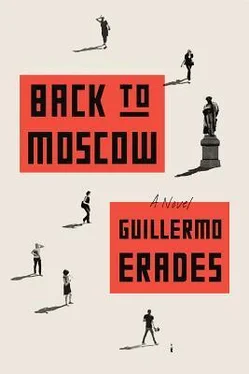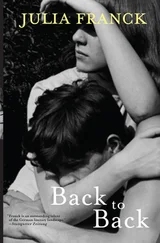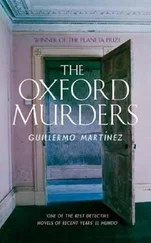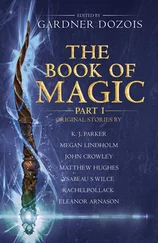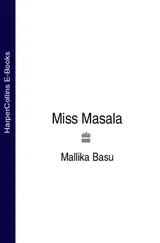‘What has the Duck got to do with this?’
‘The Hungry Duck symbolised the social and political changes. Dyevs in the Duck were crazy sluts because sexuality was oppressed for seventy years by the old regime. Their sluttiness was a form of unconscious protest against oppression.’
‘That’s crap,’ I say. ‘Look at Chekhov’s plays, everybody fools around.’
‘That’s in books,’ Colin says. ‘Free sex in real life is something new.’
At the end of the song, as the music quietens down, a table is knocked over at the back, glasses shattering on the floor. The crowd is silent for two seconds. Then someone screams vsyo khorosho, everything’s good, and there is laughter and the dancing goes on.
‘Some things never change,’ I say. ‘One day, we’ll be gone from Moscow, but other guys will come to this very bar to pick up dyevs, and new dyevs will come to get drunk and have fun. It’s the circle of life.’
‘No way,’ Colin says, undoing a button on his shiny blue shirt. ‘Come here in ten years and see. There might be a Real McCoy, but it won’t be like this. Look what happened to the Duck.’
‘That’s different,’ I say. ‘The Duck was too wild. It couldn’t last.’
‘Nothing good lasts, man. Life’s a short bitch and we have to enjoy every fucking bit of it.’
I nod, taking a long sip of my drink.
‘This Moscow,’ Colin says, his arm hovering over the McCoy crowd, ‘ our Moscow, will also disappear.’
WITH THE WARM WEATHER, the trees around the university campus, which had been bare all winter, turned lush and green. The city was flooded with a bizarre soft light that revealed a mesmerising range of faded colours, and you could now see pale pinks and greens and blues on the façades of old buildings. They were all turning into white, these colours, sun-bleached, and Moscow at this time of the year felt polaroid-faded, dreamlike. Walking the older streets of the centre I was often under the impression that my surroundings belonged to a discoloured guidebook.
You could find plenty of dyevs strolling around Okhotny Ryad and Aleksandrovsky Sad, or manoeuvring their high heels across the cobblestones of Red Square. They wore impossibly short skirts and no bras, ate ice cream, and stared straight into your eyes for as long as you could hold their gaze.
To combat the heat, terraces and kiosks across the city sold bottles of beer which men carried proudly in their hands as they strolled along the boulevards or sat on park benches. If you ventured under the archways of old buildings and into their courtyards, you would sometimes discover hidden cafés, temporary wooden structures that sold grilled shashliks and dried fish.
In the months I had spent in Moscow, new coffee shops had sprouted around Tverskaya, Bolshaya Dmitrovka and Bolshaya Nikitskaya, and in the smaller streets around Kuznetsky Most and Kitay-gorod. They sold expensive cakes — eclairs, Napoleons, carrot cakes, brownies — and, for the first time in Russia, freshly brewed coffee. Dyevs sat in these trendy cafés for hours, stuffing themselves with sugar and caffeine, reading women’s magazines and Akunin books, redoing their make-up every twenty minutes with the help of pocket mirrors. But they were never fully focused on their reading, I realised. Even if seemingly absorbed in a book, dyevs were always attentive to their surroundings, ready to look up at any minor disturbance, like gazelles on the savannah who don’t let their guard down while drinking from a pond.
On Saturdays I played football. Our team played in blue shirts and was called the Blues Brothers, which was why — I seem to recall — we had started referring to ourselves as the brothers. I’d met them through Colin at the beginning of my stay. We played an expat league but the rules allowed two Russian players per team. Stepanov was a solid midfielder. Colin played up front with me and Diego spent most of his time on the bench, happy to come out for ten minutes and then enjoy the drinks.
We had played all winter on a covered pitch in Dinamo but now that it was warm and dry we played in Kazakova, a small park east of the ring road. The grass pitch was surrounded by woodland and the ruins of a pre-revolutionary palace. A green oasis — it didn’t feel like Moscow.
It was the Dutch expats who managed the football league. They’d arrived in the mid-1990s, recruited by Russian oligarchs who didn’t trust local employees to run Moscow’s casinos. They were all a bit older than the rest of us and most had Russian wives and kids. The Dutch booked the pitch, paid the referees and brought local casino employees every Saturday to serve shashliks and salads and cold beers after our matches. So Saturdays were lovely, especially when it was sunny, and the players brought their wives, girlfriends and mistresses to watch our games.
I would bring Lena and no one else. She would stand on the side of the pitch in her skimpy summer dress, her short blonde hair gleaming under the sun. She would pace on the grass, along the sideline, following the game with attention, but I never heard her shout or cheer, not even on the rare occasions when I scored a goal. After the match, I would grab a bottle of beer from the ice bucket, and lie on the grass to watch the next game with my head on Lena’s lap, feeling the sun warm my cheeks while she stroked my sweaty hair.
By mid-June, the nights were so short that the sky was bright until midnight, when we entered the clubs, and bright again when we came out onto the street a few hours later. Clubs opened their own gardens and terraces, and it was around this time that the party boat started to run on Friday nights.
The boat was an elitni affair, and the point and time of its departure one of Moscow’s best-kept secrets. It was Stepanov who would find out on Friday which embankment the party boat would depart from that night. After a few warm-up drinks in Stepanov’s place, we would get on board and, because we were in the know, we were always allowed in. There would be plenty of New Russians on the boat, models and actresses and TV people, some of whom even I recognised, and the boat would drift all night up and down the Moskva river, stopping every now and then to load and unload beautiful people.
On board, we felt part of Moscow’s tusovka, the chosen ones, gathering to spend the nights in communion with the city. We drank, talked to dyevs, made best friends, and I would often meet the dawn dancing on the top deck, as the boat glided gently over the dark waters, blasting its mellow techno music under the enormous statue of Peter the Great or Christopher Columbus, and the chocolate factory, and the House on the Embankment, with its giant Mercedes-Benz star, and my heart would beat faster as the boat passed under the Bolshoy Kamenny Bridge — where we would all duck for no reason — and emerge by the earthy walls and golden domes of the Kremlin as the city was brought to life by a warm orange sun rising over the east.
Oh Bozhe, how I loved Moscow!
AT THE BEGINNING OF July, about ten months into my stay, I rented a studio on Tverskaya, on the top floor of an old soviet building. The landlady requested that I pay in cash, which suited me fine as all I had was the stack of dollars I was getting from Stepanov. Rents in the centre, which would skyrocket later, were quite reasonable at the time.
My flat had no bedroom, just a living room, half of which was occupied by an enormous corner sofa that unfolded into a bed. Once I’d got the landlady to change the carpet, the place looked pretty decent. Above the couch, I hung an Indian tapestry that Lena had bought me for my birthday and had previously adorned my university room. The tapestry showed Lord Ganesh, in browns and yellows, surrounded by white dots. Handing me the present, Lena had told me the story of how the Hindu god had had his head chopped off and replaced by that of an elephant. She assured me that Lord Ganesh brought good luck, that he used the little broom in his hand to remove obstacles from the path of life.
Читать дальше
